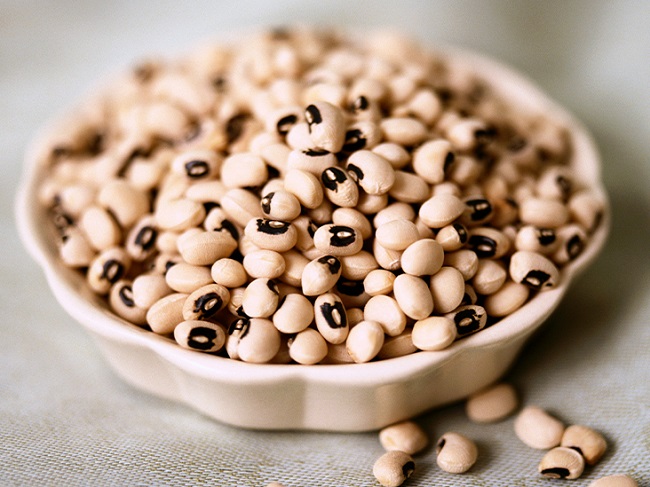The next time you plan your meals for the week, check that you’re getting enough copper in your diet. Foods rich in copper are not hard to find, but they are also often not regularly consumed. However, meeting daily copper requirements in the diet is important for energy production, maintaining blood vessels and supporting the immune system.
Researchers, in a new study, said consuming foods rich in copper, such as lobster, nuts, and beans can also be beneficial for individuals suffering from constipation due to their copper content, particularly individuals with copper deficiency.
Specifically, an increase in dietary copper intake was associated with a 20 percent reduction in the prevalence of constipation, indicating that higher copper consumption may help alleviate this condition and enhance intestinal health.
Chinese researchers at Wuxi Medical Centre of Nanjing Medical University and Jiangsu University, Zhenjiang, utilised bowel health data from the National Health and Nutrition Examination Survey (NHANES) conducted between 2005 and 2010. It was in the journal Nature.
These were 10,367 individuals whose average age was 49 years old. They had face-to-face interviews with an investigator at a mobile screening centre, which was later followed by phone interviews. Participants took part in 24-hour dietary recalls.
Dietary information was gathered through questionnaires, allowing researchers to analyse the dietary copper intake of participants in relation to their constipation status after taking into consideration factors such as gender, age, and ethnicity, as well as factors such as exercise, alcohol intake, and dietary supplement use.
Approximately 11% of the participants, or about 1,122 people, were diagnosed with constipation. Women experienced constipation at a significantly higher rate compared to men.
Constipation is a condition in which a person has uncomfortable or infrequent bowel movements. Generally, a person is considered constipated when bowel movements result in the passage of small amounts of hard, dry stool, usually fewer than three times a week.
Many people suffer from constipation, which is often a symptom of chronic illness. But not all constipation is the same.
Copper is not produced by the body, so it must be obtained from the diet. The World Health Organisation recommends that an average adult should consume approximately 2 mg of copper per day, which is equivalent to 2,000 mg of copper (1 mg = 1,000 mg).
Although copper is an essential element, its level in the body largely varies with food intake. Higher levels of copper are often observed due to the consumption of copper-rich foods like oysters, liver, nuts, legumes, whole grains, and dried fruit.
They suggested that copper is essential for the function of enzymes that facilitate digestion and nutrient absorption, which can improve bowel regularity.
According to the researchers, the study’s results provide compelling evidence of the beneficial effects of dietary copper on reducing the prevalence of chronic constipation, highlighting the need for further exploration and potential dietary recommendations in clinical practice.
Read Also: Ondo guber: Tinubu leads APC final rally
They declared, “Our findings indicate that higher dietary copper intake is associated with a reduced risk of constipation, demonstrating a significant inverse dose-response relationship.
“This significant finding raises the awareness of clinical and healthcare practitioners about the impact of dietary trace elements on intestinal health and helps clinical and healthcare practitioners understand the impact of dietary trace elements on intestinal health.
“This is of great significance for the development of personalised dietary regimens and rational supplementation of trace copper elements for patients with constipation.”
Getting the correct amount of copper in the body can also help to protect the heart. Copper deficiency can cause a reduction in metabolism and energy supply in the heart. It can also increase the risk of ischaemic heart disease.
A study in the Journal of Experimental Medicine showed how foods rich in copper can be good for an ailing heart. The study suggests that consuming more copper in the diet may help people with heart muscle conditions.
Copper deficiency can cause a reduction in metabolism and energy supply in the heart. It can also increase the risk of ischaemic heart disease. A study in the Journal of Experimental Medicine showed how foods rich in copper can be good for an ailing heart. The study suggests that consuming more copper in the diet may help people with heart muscle conditions.
Recent studies have also shown that copper plays a role in the health of the brain even when we are at rest. The brain consumes 20 percent of the oxygen taken in through respiration. This oxidative metabolism requires the body’s highest levels of copper, iron, and zinc.
Too much or too little copper can be dangerous to your body. There are many disorders associated with copper levels, indicating that we should have adequate amounts of copper in the body. For children, deficiency can lead to slowed growth and development.
For adults, there are numerous problems that can arise, including anaemia, heart and circulation problems, bone abnormalities, and complications in the nervous and immune systems.
